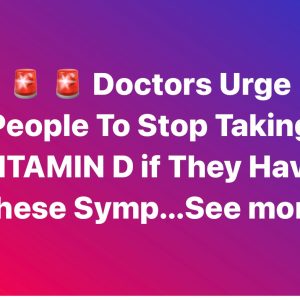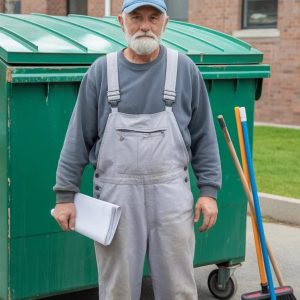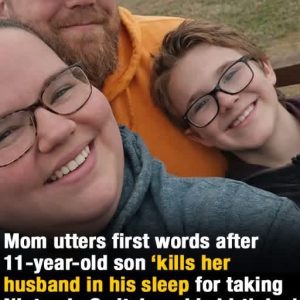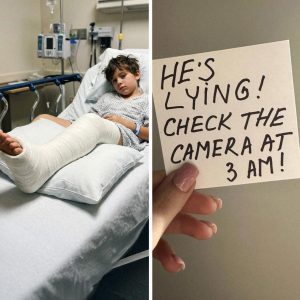After my husband died, I learned to carry silence like a second shift—steady, practical, heavy—until one lunch break at the hospital reminded me I wasn’t as invisible as I thought.
My name is Sophia. I’m 45 and have been a nurse in a big Pennsylvania hospital for twelve years. It isn’t glamorous. It’s alarms and fluorescent lights, the low hum of machines, families wringing their hands in the corners of rooms. Most days are a braid of small mercies—an extra blanket, a hand squeezed through a last breath, a joke that lands at exactly the right time. It feels like the work I was built for.
I didn’t expect to be a widow at 42. Mark died upstairs while brushing his teeth, humming something off-key that I can only ever half remember now. No warning. No slow slide. He was there and then he wasn’t. Nineteen years of marriage snapped in one ordinary moment.
It’s been me and our daughter ever since. Alice is fifteen, sharp as a tack with her father’s dry humor and my bullheadedness. She still slips notes into my lunch bag. Last week’s was a doodle of a nurse clutching a coffee the size of a fire hydrant: “Hang in there, Mom.” I laughed out loud in the medication room and had to pretend the sound was a cough.
We live a few blocks from the hospital, a two-bedroom with squeaky floors that complain when I come in late. I pick up doubles more often than is wise. Alice never asks for anything extravagant. Maybe that’s what undoes me: how carefully she reads my face before she says she needs notebooks or bus fare, as if my forehead holds the household budget.
That Friday was a full sprint before sunrise. Short two nurses in the ER, one resident new to the charting system, and a board that never stopped blinking. Six hours chased each other into the next: meds, vitals, calls to families, a chest pain in Bay 7, a toddler with a fever who only stopped crying when I sang a ridiculous song about a lollipop. By the time I walked into the cafeteria, it was after two. My scrubs clung at the back from sweat; there was something—blood? iodine?—on my left shoe, and my legs felt like they’d been filled with wet sand.
I chose the corner table facing the wall, the place where I can let my shoulders drop without anyone asking if I’m okay. I peeled off my mask and the relief felt indecent, like stepping out of heels you never should’ve worn. From my bag, I pulled the sandwich Alice had made: ham and cheese on rye, crusts on because she’s decided I need the extra fiber. Tucked into the napkin, her note: “Love you. Don’t forget to eat.” I smiled at that. For one clean second, the humming in my head quieted.
“Excuse me, is anyone actually working around here?”
The voice sliced through the room. I looked up. A woman in a white blazer and trousers stood just inside the doorway, immaculate from bun to lipstick. The click of her heels echoed like she’d rented the place for a press conference. A man trailed behind her in a dark suit, eyes glued to his phone, scrolling like his thumb had paid the mortgage.
Her gaze found me as if she’d been aiming for it. “You work here, right?” she said, pointing—actually pointing. “We’ve been waiting twenty minutes in that hallway, and no one’s come to help. Maybe if you people stopped stuffing your faces—”
Conversations stalled. Forks tilted midair. The air thinned. I stood, sandwich still in my hand, my heart performing a slow, even drum that felt like habit more than calm.
“I’m sorry, ma’am,” I said, keeping my voice level. “I’m on my break, but I’ll find someone to help you.”




